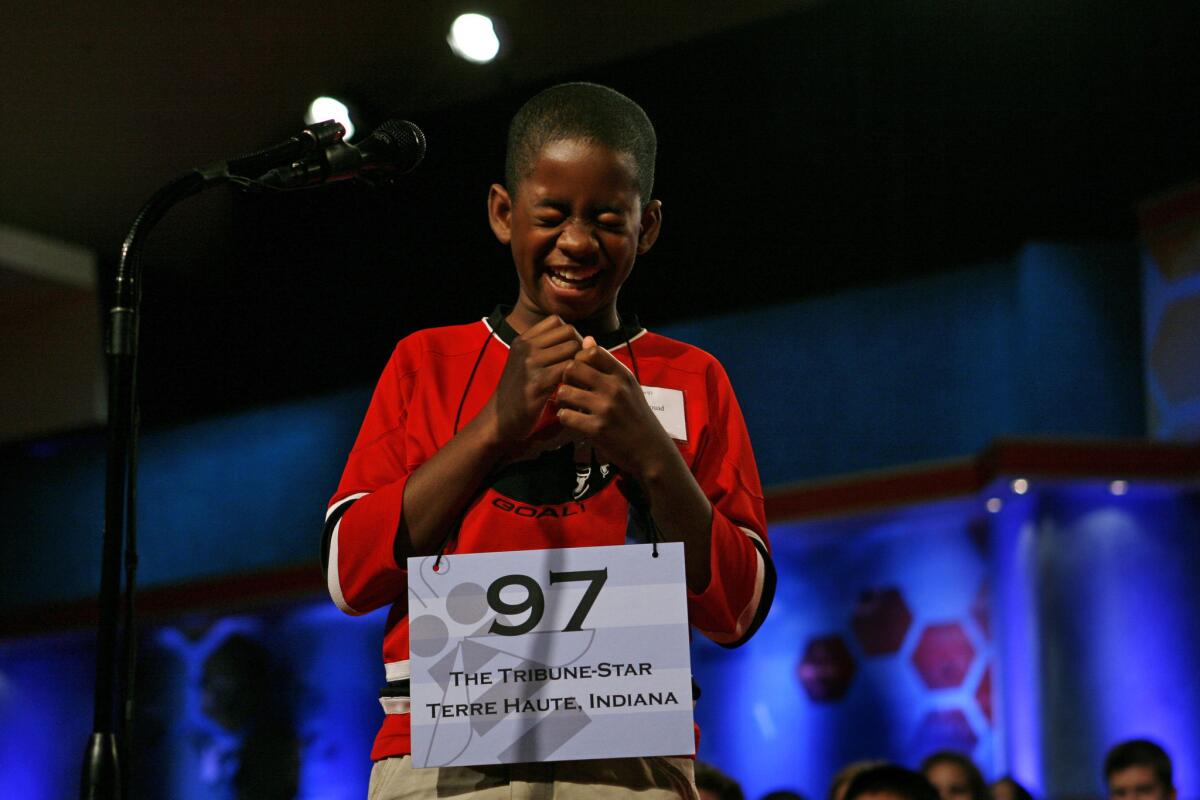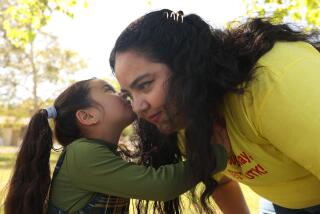Spelling bee whiz kids must now take vocabulary tests

To bee, or not to bee, has now become a tougher question to answer -- even for whiz kid spellers.
The Scripps National Spelling Bee has announced that it is changing the format of its annual competition and adding multiple-choice vocabulary tests to the annual event.
To qualify for the semifinals and championship round, spellers will be judged on a cumulative score that incorporates live spelling, computer-based spelling questions and computer-based vocabulary questions, organizers announced on Tuesday.
Vocabulary will count for half of the overall score that determines who advances in the competition that will be held May 28-30 in Oxon Hill, Md. The test-taking will not be broadcast, though the final spelling rounds will be.
“This is a significant change in the Scripps National Spelling Bee, but also a natural one,” said Paige Kimble, director of the competition.“It represents a deepening of the Bee’s commitment to its purpose: to help students improve their spelling, increase their vocabularies, learn concepts and develop correct English usage that will help them all their lives.”
“Spelling and vocabulary are, in essence, two sides of the same coin,” Kimble said. “As a child studies the spelling of a word and its etymology, he will discover its meaning. As a child learns the meaning of a word, it becomes easier to spell. And all of this enhances the child’s knowledge of the English language.”
Vocabulary has been part of the 86-year history of the modern competition. The pupils usually asked for a definition in the hope that the meaning would make it easier to spell the word right. Now the tables will be turned a bit through cyberspace, as contestants must know the meaning as well.
The bee will use a points formula to determine the finalists, combining vocabulary and spelling scores. The traditional finals, in which children battle one another in a no-holds-barred spelling competition, will continue until there is just one finalist standing.
This year’s 281 spellers come from eight countries and Department of Defense schools in Europe and the U.S. territories of American Samoa, Guam, Puerto Rico and the U.S. Virgin Islands.
ALSO:
Wild spring weather hits Denver and beyond
Seattle police chief retiring from troubled department
Deputy’s wife killed when goes off in hands of 4-year-old
More to Read
Sign up for Essential California
The most important California stories and recommendations in your inbox every morning.
You may occasionally receive promotional content from the Los Angeles Times.











